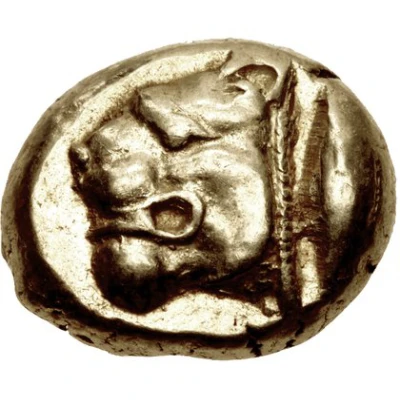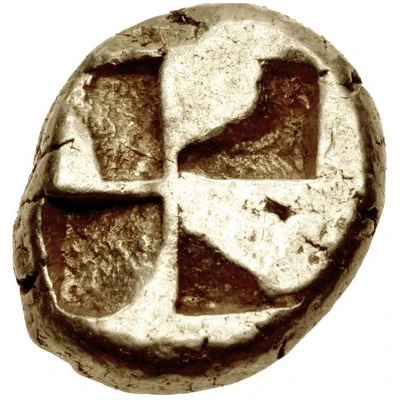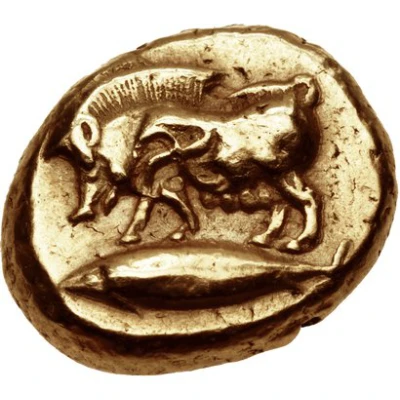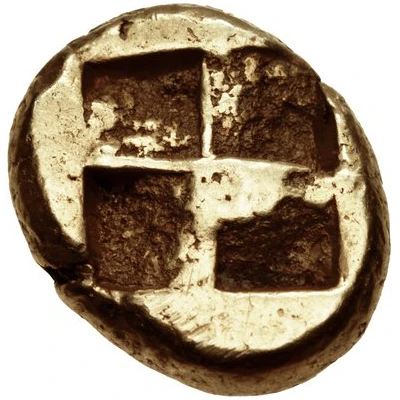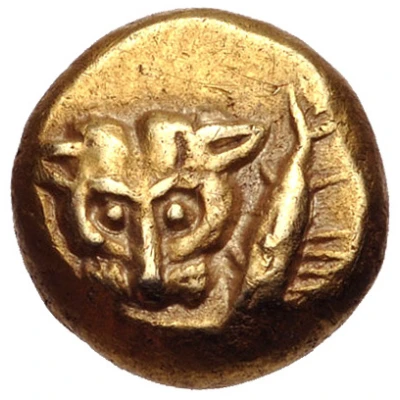
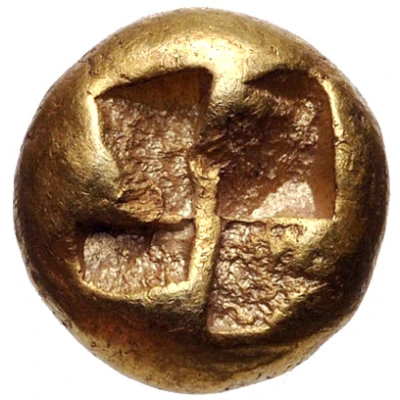

© Classical Numismatic Group, Inc.
Hekte 550 BC - 500 BC
| Electrum | 2.71 g | 9.0 mm |
| Issuer | Kyzikos (Mysia) |
|---|---|
| Period | City administration (600 BC - 1 AD) |
| Type | Standard circulation coin |
| Years | 550 BC - 500 BC |
| Value | Hekte (⅙) |
| Currency | Electrum Stater (600-330BC) |
| Composition | Electrum |
| Weight | 2.71 g |
| Diameter | 9.0 mm |
| Shape | Round (irregular) |
| Technique | Hammered, Incuse |
| Demonetized | Yes |
| Updated | 2024-10-10 |
| Numista | N#133976 |
|---|---|
| Rarity index | 100% |
Reverse
Quadripartite incuse square.
Interesting fact
The Hekte coin was used as a form of currency in the ancient city of Kyzikos (now known as Mysia) in modern-day Turkey, and its design features a unique combination of animal and human figures. On one side of the coin, there is an image of a lion's head, while on the other side, there is an image of a human head wearing a crown. This blending of animal and human elements was a common feature of ancient Greek coinage and reflects the importance of both nature and human civilization in the culture of the time.
